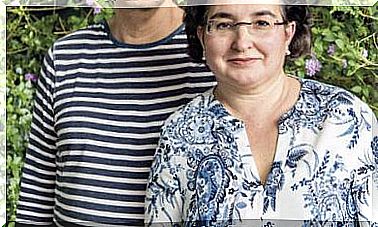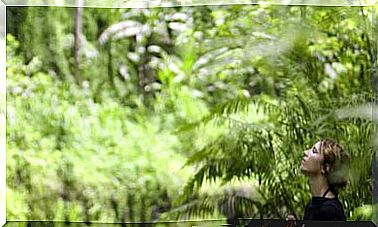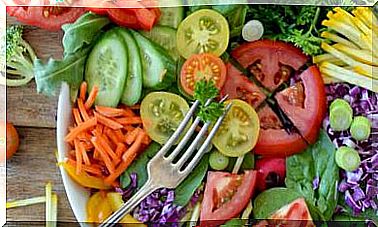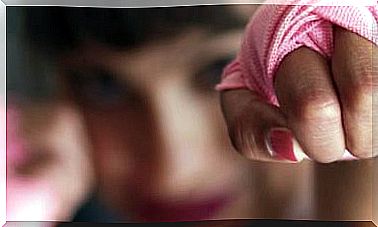Love And Learn From What Life Has In Store For You At All Times
Life involves experiences of all kinds. To flow through it, the best thing is to love and accept everything we learn.

Throughout life we find endless experiences on our way. Some of us hug them quickly because they make us happy, like the birth of a child or a beautiful new friendship. Others, on the other hand, are difficult for us to accept, because they have hurt us, such as the loss of a loved one.
If the pain is deep, we may even close our hearts trying to protect ourselves. Although at first when faced with an experience that has hurt us – an illness, a love breakdown or a job dismissal – it is totally normal and legitimate to try to put it aside, to oppose too long to what life has in store can lead to settling in positions of rejection , of feelings of injustice, perhaps of rancor or rage, which are the galleries of human suffering.
And so we stop growing as people and enriching our range of experiences. “Coming to appreciate or accept, to include in our hearts, the experiences we have had, even those that were difficult, is in the long run a good strategy. In this way we also remain more open to life and become more rooted in ourselves. themselves “, considers Joan Garriga, co-founder of the Institut Gestalt de Barcelona.
Trying to accept and appreciate the complicated things that happen to us does not mean that they stop hurting us. But it is not so much about not fighting as accepting and moving forward. Ultimately, it is a matter of being grateful for what is happening to us and gradually releasing ballast, to move without burden.
Because becoming aware and letting go generates amplitude, space to observe. From there you can choose what to do, what steps to take, where to look.
Embracing learnings
Being delicate and careful with the learning processes , loving what arises and what is acquired in each moment, although it sometimes hurts, reconciles us with valuable parts of our humanity.
Loving what is learned, loving without the dimension of loving a child or a friend, but rather as an act of conformity, of non-opposition, of acceptance. To try to extract some fertile seed from what was difficult. Because then yes, love can sprout, which is not so much an emotional state as a welcoming attitude, welcoming things as they manifest themselves.
Everything can have a place. There are those who consider that suffering from diseases as serious as cancer is what generates true learning; However, everything in life is an open door to learn, from getting married to having a child or starting a new work stage. Loving all these varied learning that we constantly face is a long journey with different phases.
Each one has certain times and processes to advance on that journey. If something happens to a child or partner, that plunges us into a kind of internal emotional whirlpool. Recovering from that experience and being able to start the road again – separating a little from the pain in order to continue – usually requires more time than, for example, a bad work experience.
For Garriga, “instead of wasting a lot of time complaining, wondering ‘why me? ‘, It is more valuable to accept that this has happened, he has come and make room for it.
Of course, without forcing anything. There are people who experience a recent loss and in a short time there are already those who ask them what they learned, without taking into account that this natural process takes time, that it cannot be imposed or pressured from the outside.
Disciples of reality
Learning is almost inevitable. There is no experience that in one way or another is not nourishing and that does not leave an indelible mark on us. Although, yes, “it is not the same to be a victim of reality as a disciple, because the latter tries to learn something, while reality passes over the victim,” says Garriga wisely.
Many people who have had very difficult experiences learn not to identify so much with certain facets of their identity. This leaves them emptier, lighter, and also, paradoxical as it may be, brighter and full of life.
Walking through that learning that life has in store for us costs more or less depending on the expectations that are had, points out Constanza González, clinical psychologist at the head of Sentit Procesos Transformadores. If they are positive, if we know that something beautiful will come out of our effort, it is easier to go through the pain.
This is what happens, for example, when psychological therapy is started in order to gain perspective on behavior patterns or attitudes that pose an obstacle.
Or, on another level, when starting a physical activity –sport, dance, yoga …– in which laziness and certain physical limitations must be overcome. Now, if the expectations behind the discomfort are negative or dominated by uncertainty, then it will be more difficult to walk through that pain.
You can also fall into the illusion of thinking that something positive will always come out of a difficulty when it may not be the case, points out Constanza González. And he gives as an example a woman who lost her mother five years ago, at a time when she needed her very much. She still regrets that she has not been able to meet her grandchildren or that they have been able to share her recent motherhood together.
“Surely, she will not see what she has to be thankful for there or understand that she must love that pain with which she lived her loss. Learning is in the process, seeing what you did with the vital moment you were in. And it depends on the conscience with the that you walk through that pain. Gratitude is something that arises when there is a certain type of consciousness, when the transformation has been deep and you realize it “, adds this psychologist.
Loving, more than an emotion, is an attitude of welcoming, of welcoming things as they are manifested.
A necessary difficulty
Life is a constant dialectic between our desires and reality. And in this dialogue we have to learn hard to invest in our desires but also to tune in to what reality raises, even if it is different from what we want. Because life uses disappointment a lot and it takes many forms, from a love disaster to a problem with a child or difficulties at work or health.
“Anger opens to the soul a light that prosperity denies it”, says Joan Garriga. If we are always expanding, embracing positive experiences, we will be missing a part of reality, we will not be living life fully. You also have to know how to lose, face the setback, the painful, the death, which are an intrinsic part of life from its origin.
It is said that in his awakening to Buddha the “four noble truths” were revealed to him , among them that pain is part of life but that suffering is avoidable. We can cope by not clinging stubbornly to our desires and fears. If you always wanted to have a child but it did not come, anchoring yourself in that pain will make it difficult to continue moving forward.
You can choose to live that situation with bitterness or try to accept it and open yourself to other possibilities that being without children implies. “If we oppose reality, we will suffer. If we open ourselves to it and accept it, we can go further,” says Garriga.
And that opening to life passes through the heart, through emotions and not only through reason. As much as we try to face a painful experience to try to understand from the mind and the reason what to learn in that situation, in order to save the way and know what is at the end and be calm, the only way that there is learning is by walking it .
How to love and learn
1. Don’t anchor yourself in pain
When a disease is serious and threatens existence, it brings us face to face with ourselves. And although the first feeling may be of anger and injustice and we wonder why we have had to deal with it, it is not advisable to waste too much time or energy in this process.
When the Dalai Lama is asked how he does it so as not to be angry with China, he usually responds that that country has done so much harm to its people that it is not willing, on top of that, to give them its anger all the time. We all have wounds and have been through painful experiences.
Before them we can either remain anchored in suffering or embrace those experiences by accepting them, which does not mean resigning ourselves.
2. Leave behind the fear of change
We often endure in positions that hurt us vitally, not daring to move, for fear of the pain that we think will come.
We fear letting go, changing our position, without realizing that we are already suffering in this way. Flexibility is an essential quality to take on life’s learnings. It allows changing and adapting to situations, abandoning the stubbornness of castling into a point of view that may be wrong or obsolete.
Some internalized behaviors during childhood, although they do not work, continue to be repeated. An example would be yelling for the other to respond. And if you don’t, maybe screaming more, without questioning if screaming is the way.









